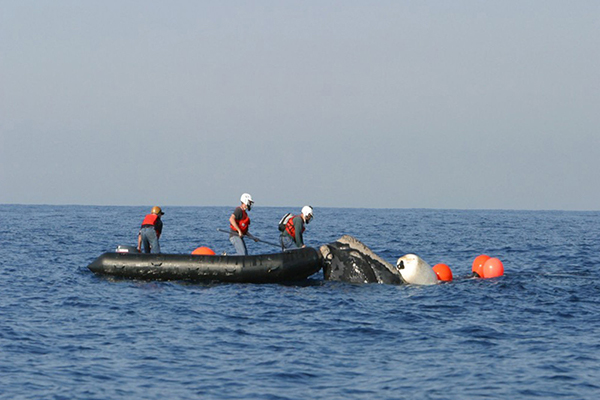Massachusetts Lobstermen Test Ropeless Fishing Gear to Save Right Whales

Jenn Stanley-Commonwealth News Service
BOSTON – Researchers say conservationists and the fishing industry must work together to save the critically endangered North Atlantic right whale. Only about 400 of these whales are left living in the wild, and scientists say human activity is to blame.
Proposed federal regulations aim to curb ship strikes and fishing-gear entanglements, which make up about 90% of all North Atlantic right whale deaths. But these measures drastically reduce the number of lines lobstermen are allowed to have in the water. That’s why Massachusetts lobstermen are eager to try new technology that would enable them to set their traps without a vertical line.
Patrick Ramage is director of marine conservation for the International Fund for Animal Welfare. He said this kind of compromise is crucial for the species’ survival.
“One of the solutions that’s on the near horizon is so-called ropeless fishing gear, so there’s no permanent buoy line,” Ramage said; “more than a million of which are currently strewn between the right whale’s birthing grounds off Florida and Georgia through New England waters and pose a very severe threat to the persistence of this species.”
Researchers studying the North Atlantic right whale say between 2003 and 2018, human activity caused all the deaths identified in the population.
Some fishermen on Cape Cod Bay already have begun testing ropeless technology. Rob Morris is a product line manager at EdgeTech, a Massachusetts-based manufacturer of underwater technology solutions.
“We’re working closely with the inshore fishers in Massachusetts, and they’re all accepting of the technology and they want to test everything, all options, to figure out what they can do to keep on fishing and to protect the whales,” Morris said.
Federal regulators have yet to approve this technology. If and when they do, cost could be prohibitive for some fishermen without government or foundational support.
